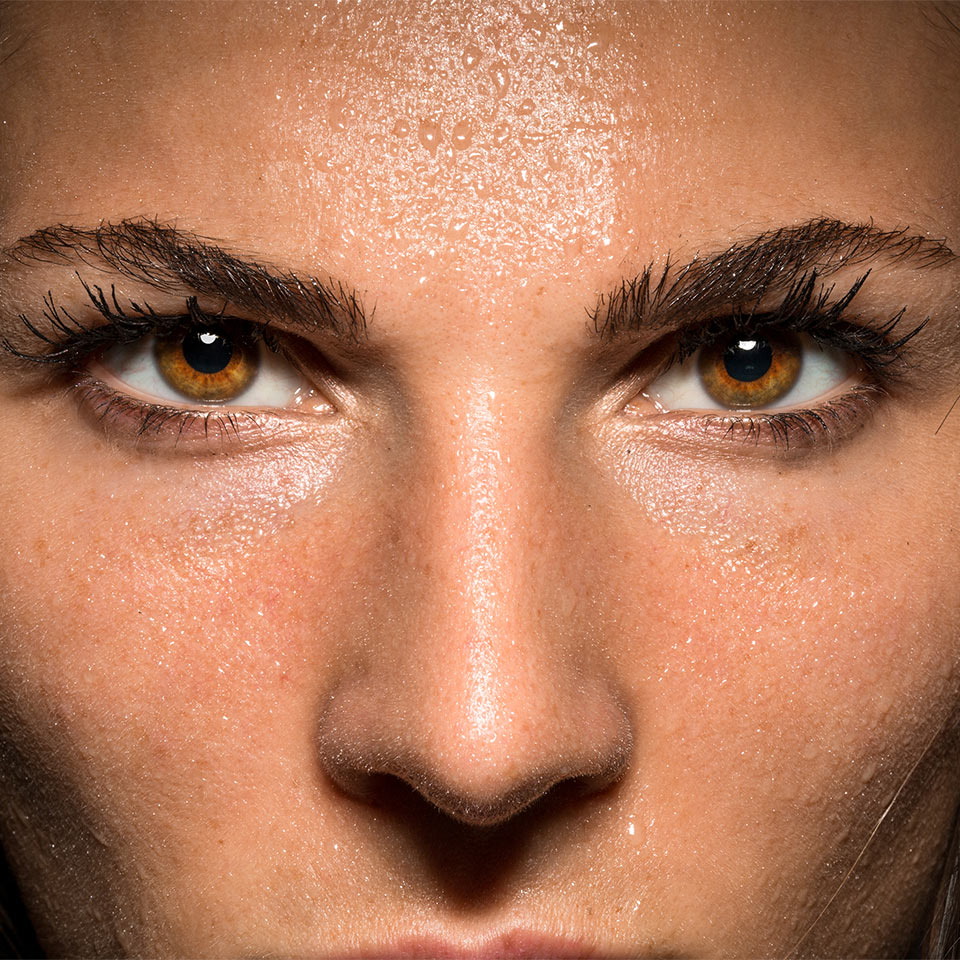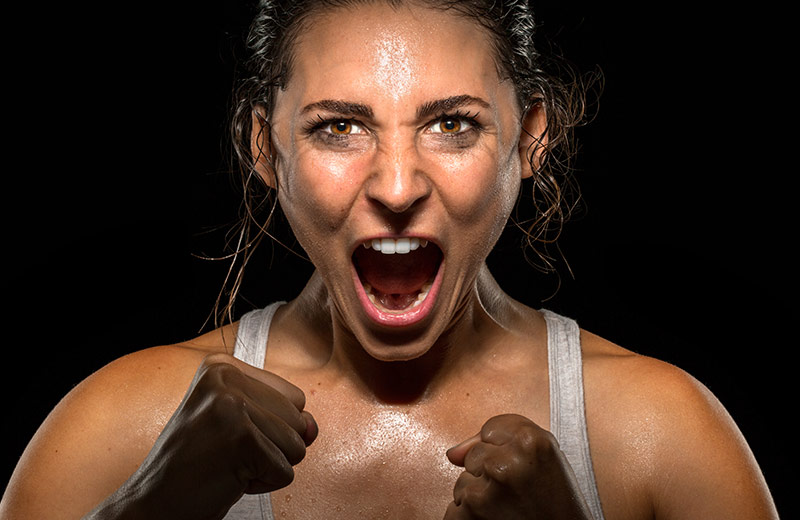Sports psychology is becoming increasingly important in the sports industry, and can help to provide a crucial competitive edge. It is the study of how psychological factors influence sports, athletic performance, exercise, and physical activity, and sports psychologists are now an essential part of any team’s coaching staff.

Jump to:
Sports psychologists are commonly known for utilising the psychological aspects of sports to help enhance an athlete's performance and mental well-being. For example, football team sports psychologists help their players get into the ‘zone’ right before the game. What’s less known is that there are various kinds of sports psychologists. Some simply investigate how participating in sports can help improve health and well-being, while others adopt a more analytical approach.
Another common misconception is that sports psychology is reserved for professional or elite sports. However, sports psychologists, and sports psychology in general, can help both non-athletes and hobbyists. In this blog, we’ll explore all you need to know.
Recommended for you!
Best SellersWhy Is Sports Psychology Important?
Sports psychology is of paramount importance in the world of sports. In sports, there’s a clear intersection between physical activity and mental well-being. Sports psychologists dissect this and help athletes to maintain high levels of performance by prioritising mental fitness. They also look at sports participation in relation to skills like teamwork and emotional regulation. Competitors are under immense physical and emotional stress, so any competitive edge is extremely important.
Sports psychologists take a holistic approach to each client’s health, ensuring they are more likely to overcome mental roadblocks and helping them manage stresses that are put on them by either themselves, their team, or the general nature of the competition. They look for ways to improve mental toughness and athletic performance simultaneously.
Some of the benefits of sports psychology include:
- Increased passion and drive for the sport.
- Effective ways to manage stress.
- A healthier perspective of self and your own ability
- Improved athletic performance.
- Reduced anxiety, especially within situations revolving around sporting events.
History Of Sports Psychology
As far as psychological disciplines go, sports psychology is relatively young and has had a few false starts. Sports psychology as we know it today started to take form in the early 20th century, when scientists became fascinated by the performances of athletes like the baseball player Babe Ruth. Their studies examined physical skills and the way cognitive skills like memory, perception, attention, and focus affected athletic performance.
The first research lab devoted to the discipline opened in 1925 in the USA. However, the lab would close shortly after in the early 1930s, and American research did not revisit the topic until the late 1960s, which saw a revival of global interest in the discipline.
The 1960s and 1970s saw a more structured approach in the UK. Pioneers like Peter McIntosh at Loughborough University began integrating psychological concepts into sports science courses. The British Psychological Society (BPS) then formed a Sports and Exercise Psychology Section in 1979, providing a professional body for practitioners and researchers.
Sports psychology became significantly more widespread in the 1980s and 1990s, leading to its use by national sports organisations and professional sports teams. In modern times, sports psychologists are an essential part of professional sports teams and backroom staff.

Types of Sports Psychologists
Just as there are different types of psychologists, there are different types of sports psychology.
Clinical Sports Psychologists
Clinical sports psychologists assist athletes who suffer from mental health issues like depression or anxiety. They employ techniques from both sports psychology and psychotherapy. Their goal is to enhance the athletes' mental well-being while simultaneously improving their sports performance.
Exercise Psychologists
Exercise psychologists cater more to hobbyists and general exercise enthusiasts. They collaborate with non-athlete clients or regular exercisers to help them develop consistent workouts and healthy habits. This work often incorporates techniques similar to those used by sports psychologists, such as setting goals, practising mindfulness, and applying motivational strategies.
Educational Sports Psychologists
An educational sports psychologist uses psychological methods to help athletes improve sports performance. Some of their techniques involve imagery, goal setting, or self-talk.

Sport Psychology Topics
Sports psychologists focus on more than just on-field events or situations. They analyse all factors influencing game-day performance and an athlete's overall well-being. A typical sports psychology programme covers skills training in the following areas:
Goal Setting
Setting and achieving goals, both personally and as part of a team, is one of the most important aspects of sports psychology. Athletes are in a constant state of focus, and it can be easy to lose sight of the end goals. Sports psychologists can help to set realistic goals that still push you and help you understand how to achieve them.
Visualisation
Some believe that, if you can imagine or visualise something, then you can help to will it into existence. Positive mental imagery has long been a part of pre-game preparation and is a vital component of sports psychology.
Visualisation activates many of the same parts of the brain, as well as the muscles, that are associated with successful actions. Perhaps this is why so many athletes attribute their success to visualisation.
Pressure and Anxiety
Playing professional sports is one of the most stressful professions out there. There’s a constant need to perform, not to mention the fact that many athletes must do so in front of a sizable and expectant crowd. They are under immense pressure, physically and mentally, and they may worry that they run the risk of losing their job if they don’t perform. Ultimately, that sort of pressure can cause both anxiety and depression. It’s the job of a sports psychologist to ensure they can manage these feelings and overcome the pressure to perform to the best of their ability.
Motivation
Finding motivation can sometimes be difficult, especially for athletes who must perform regularly. Sports psychologists can help to increase energy levels and motivation, ensuring athletes are always ready for game day.
Rehabilitation
Rehabilitation and recovery are troublesome times for athletes. After all, their entire career relies on their physical ability. While the physical aspects are widely known, what is less recognised is the mental toughness and resilience that are required to recover from a setback. This is where sports psychologists can help.
Sports psychologists help athletes to cultivate optimism and extra motivation, which eases and can quicken recovery. This not only aids rehabilitation efforts but also lessens the likelihood of the athletes re-injuring themselves when they are back in action.
Focus
Focus is sometimes a forgotten part of being an athlete. An athlete must be able to tune out teammates, the crowd, and their biggest critic of all: themselves. They can’t afford any distractions. Sports psychologists can help athletes focus and pay attention, ensuring they won’t lose the game because of an unfocussed mindset.
Pre-Performance Routines
When performed regularly before a sporting event, pre-performance routines can help an athlete get into the right mindset for a game and ‘switch on.’ Our minds are trained to understand that sometimes more is required from us than at other times. Pre-performance routines are perfect for helping us to understand this distinction. They don’t need to be overcomplicated, but can be as simple as eating certain foods, listening to specific music, or even dressing in a particular way.
Arousal Regulation
Arousal regulation refers to how sports psychologists help athletes achieve the ideal state of arousal just before a performance. Arousal refers to how emotionally charged an athlete is before or during a performance. Being in an ideal state of mind helps an athlete to perform to the best of their ability. Techniques such as breathing, meditation, muscle relaxation, and other similar exercises can help achieve this state of mind.
Self-Talk
Self-talk refers to the way we talk to ourselves, whether that’s through the words we use or the thoughts we have in our minds. Sports psychologists can help to minimise or entirely eliminate negative patterns of thinking, leading to better self-image and better performance.

Progressive Muscle Relaxation
Progressive muscle relaxation involves clients learning to systematically tense and then relax different muscle groups throughout their body. This technique can be used independently or integrated with other methods for managing arousal levels. Progressive muscle relaxation has proven effective for reducing stress and anxiety, lowering blood pressure, and enhancing overall performance.
Sports Stars Who Believe In Sports Psychology
Many famous athletes from various sports have attributed a large part of their success to the wonders of sports psychology.
Footballers
Former Manchester United and Real Madrid footballer David Beckham is one of the most notable football stars to officially endorse sports psychology. Beckham has openly discussed the mental challenges that are associated with high-profile athletes. He has sought the guidance of sports psychologists to manage the mental aspects of his game, cope with pressure, and maintain focus during critical moments. Sports psychology also has a large presence in the wider world of football. Nearly all Premier League football teams have a professional sports psychologist as part of their backroom staff.
Basketballers
NBA stars Kobe Bryant, Michael Jordan, and Shaquille O’Neal have all sung the praises of working with the famous sports psychologist George Mumford, accrediting some of their success to working with him. Bryant voiced his opinions on the need for mental toughness in the high-octane game of basketball, advising that the key to success is not getting too low or high, but instead staying on an even keel. He attributed sports psychology to helping him stay in this frame of mind.
Golfers
While golf is considered to be a slightly more relaxed sport, it does not mean there isn’t a need for mental resilience! Nick Faldo, one of the most successful golfers in history, collaborated with Kjell Enhager to rejuvenate his career during a period of subpar performances. Faldo credited Enhager with helping him to analyse what was going wrong, identifying misalignments, and understanding how his body tensed up under pressure. Faldo emphasised the importance of allowing himself the chance to make mistakes to learn and improve. Enhager provided him with strategies to handle difficult situations more effectively, which ultimately enhanced his performance.
Tennis Players
They say tennis is one of the most mentally draining sports. After all, if things aren’t going well then it can be a very lonely place out there on the court. Unsurprisingly, there is a significant need for sports psychology in tennis. Legendary 20-time Grand Slam winner Roger Federer is one of the most famous tennis players to sing the praises of sports psychology. Australian Sam Stosur, Italy's Fabio Fognini, and Spain’s Marcel Granollers are some other top players who have publicly stated that they use sports psychologists.
Formula 1 Drivers
Formula 1 is widely regarded as the pinnacle of motorsport. Naturally, this leads to a lot of pressure on the drivers. Many drivers use sports psychologists throughout their careers. For example, Ferrari driver Charles Leclerc has had his own sports psychologist since he was 11. Other famous Formula 1 drivers who have publicly stated that they utilise sports psychology include French driver Romain Grosjean and Brazilian Felipe Massa.
How To Become A Sport Psychologist
Becoming a sports psychologist can be an exciting career path for psychology students and non-students alike. The career blends the topics of sports and psychological activity. However, becoming a sports psychologist is not as simple as many think, and there are many paths to becoming one.
Sports psychologists must undergo rigorous and extensive training. Most associations also advise that sports psychologists obtain a graduate or doctoral degree from an accredited college or university. It is also advised that sports psychologist candidates acquire a degree in sports science, sports medicine, psychology, or a related field.
Though exact requirements and experience vary depending on the nature of the role, becoming a sports psychologist requires extensive training and certification.
Learn More About Sports Psychology with Centre of Excellence
Are you interested in learning more about the psychology of sports? Or do you want to become a sports and performance psychologist yourself? Our Sports Psychology Diploma Course is a great way for you to explore whether this fascinating field is something that you’d want to build a career in.
You can enrol for the discounted price of £29 (instead of the original £127), or there’s also the option of Grow: our subscription service. With Grow Yearly, just £192 per year (i.e. £16 per month) will unlock our full Sports Psychology course plus 11 other courses from our library, plus 12 audio courses! Grow also includes a 10% reduction on printed materials and certificates, plus exclusive discounts and reward points that you can redeem for prizes.
Whether you have an interest in sports and want to learn more about what makes your favourite athletes tick, or you want to start your journey to becoming an accredited sports psychologist, our course has something for you.












